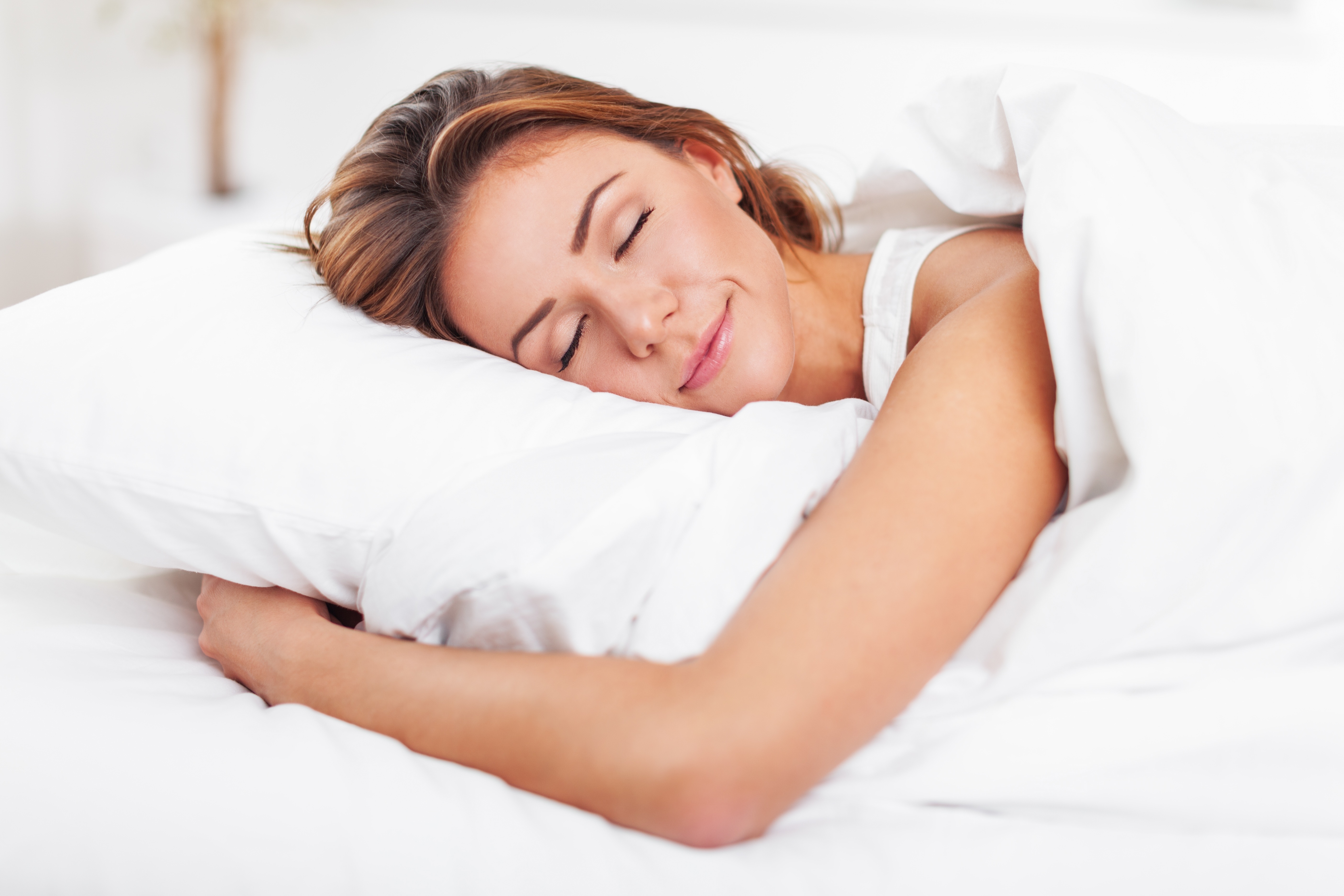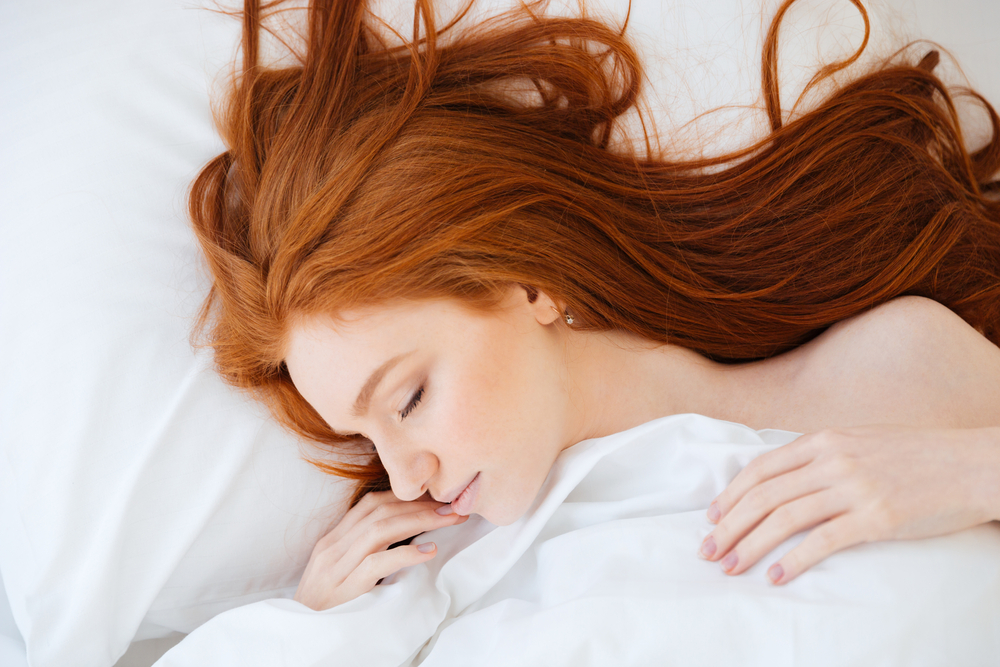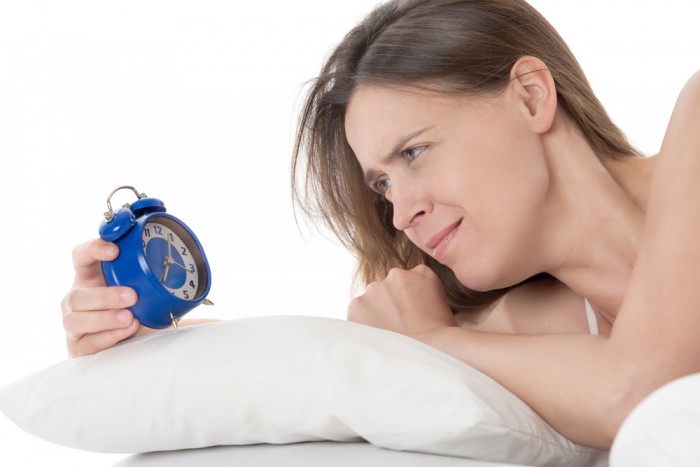The Importance of Sleep
If you want to be really healthy, you need to get enough sleep.
Unfortunately for many people, sleep can be elusive. The latest UK survey revealed almost half of British women (43%) say they are not getting enough sleep. In fact, 45% do not feel well-rested when they wake up.

Problems with a lack of sleep
Yet sleep is essential for basic repair of our body systems – whether its neurological, immune, digestion or hormones. Did you know for example that melatonin our sleep hormone is also a potent antioxidant known for its anti-ageing properties and immune supporting abilities? This is why you’re more likely to get an infection when your sleep is disrupted.
Performance
For fitness fans it’s also worth knowing that getting sufficient sleep can improve recovery and performance. It helps us to be more resilient to stress and of course makes us feel more positive and energised. Slow wave sleep (SWS) is particularly important when it comes to recovery and optimising levels of growth hormone. Lack of sleep increases susceptibility to infections and worsens the ability to fight off bacterial, viral, and parasitic infections.
Weight Loss & Insulin Sensitivity
If you’re struggling to lose weight then getting enough quality sleep should be a priority. Poor sleep can lead to insulin resistance and blood sugar imbalances, obesity and increased risk of diabetes.
In one study, men reporting short sleep duration (less than or equal to 6 hours per night) were twice as likely to develop diabetes than those men who reported 7 hours of sleep per night.
Poor sleep can also disrupt leptin and other hormones that help us to control appetite so you are more likely to overeat hindering your efforts to get in trim. Various studies have shown sleep loss is associated with decreased leptin and increased ghrelin levels, leading to an increased appetite.
Cognitive Function
If you’re studying for exams then don’t deprive your body of sleep. Studies suggest it reduced cognitive function, short term memory and can lead to anxiety and even depression. Long term poor sleep has been associated with poor cognitive function. It has been suggested that 32% of people who claim to have brain fog may actually have a diagnosed sleep disorder, most commonly insomnia, sleep apnea or restless leg syndrome.
Inflammation
A lack of sleep has been linked to increase in proinflammatory cytokines such as IL1, Il6 and TNF-alpha. It has also been suggested that poor sleep may activate a part of the immune system (Th17) that is associated with autoimmune conditions.
Some scientists think that disordered sleep may induce systemic inflammation and activate Th17 cells, thereby leading to autoimmune diseases.
Hormone Balance
Poor sleep can affect hormone balance in men and women. Sleep deprivation is thought to disrupt the natural rise and fall in testosterone levels. Total sleep deprivation reduces testosterone levels in men and women. Likewise low testosterone levels in men can affect sleep quality. For women poor sleep patterns have been associated with lower oestradiol levels in perimenopause and menopausal women.
Sleep loss elevates several pituitary hormones, which interfere with normal reproductive functions in women. High levels of TSH, Prolactin and luteinizing hormone may also contribute to fertility issues.
Our Sleep Patterns
Let’s take a moment to see what happens when the quality and quantity of sleep are optimal. During a good night’s sleep you experience two different sleep states, rapid eye movement sleep (REM) and non-rapid eye movement sleep (NREM).
There are four progressive stages of NREM sleep. During the first stage you begin to drop off. (And it is during this stage that, as the muscles gradually relax, you can awaken suddenly, with the sensation that you are falling.) Then, during stages two and three, the heart rate progressively slows and your temperature falls. Stage four provides the deepest sleep and it is during this stage that the body repairs and regenerates tissues, builds bone and muscle, and helps to replenish the immune system.
Stages III and IV are the deepest stages of sleep that are characterized by slow brain waves called delta brain waves. Together stages III and IV are referred to as slow-wave sleep (SWS).
Once you have completed all four stages, you are pulled out of the deep sleep by a phase of REM sleep, during which dreaming occurs. It’s also during REM sleep that the brain stores the information it carries as memory. Taking pharmaceutical drugs to help you sleep can affect your memory because they tend to reduce your REM sleep, as does excess alcohol intake. What is also interesting is that deep non-REM sleep occurs more in the early part of the night (11pm – 3am) – so there is some truth that going to bed earlier rather than later is more beneficial.
Some research suggests that slow wave sleep (SWS) may be the most restorative stage of sleep that might have the greatest impact on immune regulation. Slow-wave sleep is considered important to consolidate new memories.
Throughout one period of sleep, both REM and NREM sleep alternate cyclically. The first progression through the four non-REM sleep stages typically takes 70-100 minutes in most healthy people, according to the research.
Completing all four NREM stages and the REM stage means you have completed a full sleep cycle. If you get a good 7.5–8 hours’ sleep a night, you are likely to complete four or more sleep cycles.
Both REM and NREM sleep are important. Irregular cycling and/or the absence of sleep stages have been associated with sleep disorders. There is also some evidence to suggest that people with inflammation tend to have trouble getting enough deep sleep (stages 3 and 4). It may be because inflammation affects HPA axis activation which might reduce deep sleep.
Unfortunately your total amount of sleep reduces with age at a rate of about ten minutes every decade. Slow-wave sleep declines drastically as we get older. It goes from an average of 19% of total sleep during early adulthood (age 16 – 25 years) to 3.4% during midlife (age 36 – 50 years). It is replaced by lighter sleep (stages 1 and 2).
Why Can’t I Sleep?
There can be a number of factors affecting our sleep – obesity for example often leads to sleep apnea. Suffering from ongoing pain can also keep us from dropping off.
Dietary factors can also play a role. Too high an intake of stimulants (caffeine, sugar and nicotine) can interfere with the brain’s ability to relax. The half life of caffeine is around 5-6 hours. This means caffeine consumption in the afternoon could easily interfere with sleep patterns. Switch to decaf, herbal teas or redbush tea.
Alcohol may help you relax and fall asleep in the short term, but it can disrupt sleep over the course of the night. It also keeps you from entering the deeper stages of sleep. Alcohol can also disrupt blood sugar levels, resulting in nocturnal surges of cortisol and leading to night-time waking.
Do eat too late. Eating before bed can affect your sleep. Food is an important circadian time-setter. Avoid heavy meals particularly spicy or fatty food that can affect digestion.
You shouldn’t go to sleep hungry either. If you’re hungry before bed, then you’re either not eating enough in the daytime or you’re eating too far from the time you go to sleep. Many people find that eating a protein-carb based snack before bed can keep blood sugar levels steady overnight, helping to prevent night-time waking. Hypoglycemia during sleep can disrupt slow-wave sleep. High carbohydrate consumption increases slow-wave sleep hence why a little carb snack can be helpful.
Low levels of certain nutrients can also affect sleep quality including vitamin D, B12, zinc and vitamin A.
Exercise but not too late. Moderate-intensity exercise like walking / jogging has been shown to reduce the time it takes to get to sleep and improve length of sleep. But avoid exercising too late at night which may be over stimulating.
Check thyroid function. If you have suboptimal thyroid function this can slow your metabolism and you will build up less adenosine, which will make it harder to fall asleep. Adenosine is a chemical that’s a part of ATP and cAMP. It is believed to be sleep-promoting and suppresses arousal. Adenosine increases slow wave sleep.
People often talk about sleep hygiene – this really refers to making conditions more conducive to quality sleep. So making sure the room is at the right temperature (keep it cool), keeping noise to a minimum and reduce your exposure to artificial light. This could be from alarm clocks, electrical devices, phones etc as they can suppress melatonin production. Black out blinds are also very effective in keeping the room pitch black. Red glasses are useful for blocking out blue light. When the blue spectrum enters your eyes it shuts down melatonin, a hormone essential for sleep.
Nutritional Support
Certain nutrients can be helpful but it’s important to address any underlying issues first.
Melatonin, a hormone made in the pineal gland, is highly correlated with the body’s sleep-wake cycle. Supplementation can be helpful for some. In the UK melatonin is only available on prescription via the GP so speak to your doctor as to whether this may be of benefit to you. 5HTP which is available as a supplement, is a precursor for serotonin and in turn melatonin and can also be helpful for improving sleep patterns.
Magnesium for example is a relaxing mineral and rapidly depleted when the body is stressed. Try a formula such as magnesium glycinate, citrate or malate which are easily absorbed.
Zinc has also been shown in some studies to support better sleep patterns. Good food sources include pumpkin seeds, seafood, lean meat and poultry.
Taking sufficient amino acids through the day is also important to keep blood sugar levels balanced – so some people find a protein powder or amino acid formula beneficial. Glycine, a non-essential amino acid that transmits chemical signals in the brain, helps support bone health, digestion, and metabolism. This compound is also a novel and safe way to promote healthy sleep patterns.
Various herbs can be beneficial – Valerian, Lemon Balm, Chamomile, passion flower, Saffron and Ashwagandha. You may also wish to try Bioactive milk peptides supplements which have also been shown to promote better quality sleep. I also like to take warm Montmorency tart cherry juice in the evening which has been shown in studies to improve sleep.
Recently CBD oil has become a popular choice. The research is variable. Some studies suggest it can help with sleep while others indicate it promotes wakefulness. It appears that its effect is dependent on both dose and timing. CBD has been suggested to have a biphasic effect: that is, low doses promote wakefulness while higher doses increase sleep. Its effect may also vary depending on your circadian rhythm. Our 24h light/dark cycle (diurnal rhythm) directly affects the activity of your cannabinoid receptors. This might explain why CBD promotes sleep later in the day, but energizes you in the morning. The right dose for the individual can vary greatly so it may be trial and error to see if it benefits you. If anxiety plays a role with preventing you from sleeping then CBD oil may be worth a try as studies suggest it can reduce anxiety.




